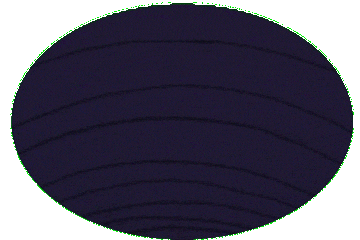Liverpool, England
Liverpool is a port city and metropolitan borough in Merseyside, England. It is situated on the eastern side of the Mersey Estuary, near the Irish Sea, 178 miles (286 km) north-west of London. It had a population of 508,961 in 2024 and is the administrative, cultural and economic centre of the Liverpool City Region, a combined authority area with a population of over 1.5 million. Established as a borough in Lancashire in 1207, Liverpool became significant in the late 17th century when the Port of Liverpool was heavily involved in the Atlantic slave trade. The port also imported cotton for the Lancashire textile mills, and became a major departure point for English and Irish emigrants to North America. Liverpool rose to global economic importance at the forefront of the Industrial Revolution in the 19th century and was home to the first inter-city railway, the first non-combustible warehouse system (the Royal Albert Dock), and a pioneering elevated electrical railway; it was granted city status in 1880 and was moved from Lancashire to the newly created county of Merseyside in 1974. It entered a period of decline in the mid-20th century, which was largely reversed after the European Union selected it as the European Capital of Culture for 2008, reportedly generating over £800 million for the local economy within a year. The economy of Liverpool is diverse and encompasses tourism, culture, maritime, hospitality, healthcare, life sciences, advanced manufacturing, creative and digital sectors. The city is home to the UK's second highest number of art galleries, national museums, listed buildings, and parks and open spaces, behind only London. It is often used as a filming location due to its architecture and was the fifth most visited UK city by foreign tourists in 2022. It has produced numerous musicians, most notably the Beatles, and recording artists from the city have had more UK No. 1 singles than anywhere else in the world. It has also produced numerous academics, actors, artists, comedians, filmmakers, poets, scientists, sportspeople, and writers. It is the home of Premier League football teams Everton and Liverpool. The world's oldest still-operating main line railway station, Liverpool Lime Street, is in the city centre; it is also served by the underground Merseyrail network. The city's port was the fourth largest in the UK in 2023, with numerous shipping and freight lines having headquarters and offices there. Residents of Liverpool are formally known as Liverpudlians but are more often called Scousers in reference to scouse, a local stew made popular by sailors. The city's distinct local accent is also primarily known as Scouse. Its cultural and ethnic diversity is the result of attracting immigrants from various areas, particularly Ireland, Scandinavia, and Wales; it is also home to the UK's oldest black community and Europe's oldest Chinese community, as well as the first mosque in England.
This article uses material from the Wikipedia article "Liverpool", which is released under the Creative Commons Attribution-Share-Alike License 3.0.
References
| Title | Summary | |
|---|---|---|
| Unison Ad | In 2004, a £1.4 million TV advertising campaign by the ... | |
| Derek Taylor | ... Derek Taylor was born in Liverpool, England on May ... | |
| Why is a Mouse That Spins? | By Roger Smith Originally published in Everybody's Talkin' ... | |












